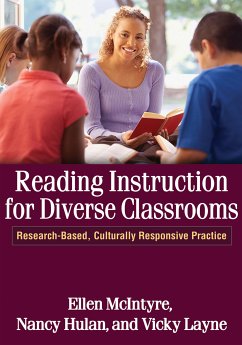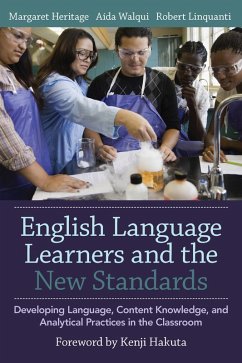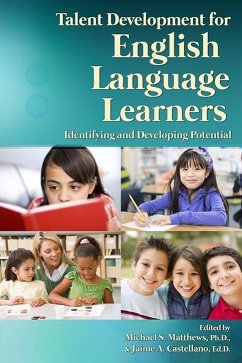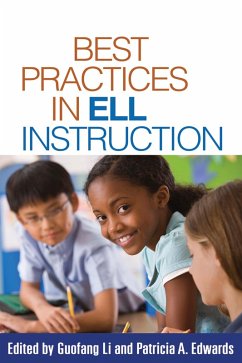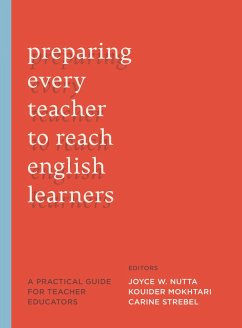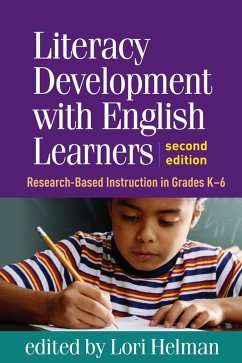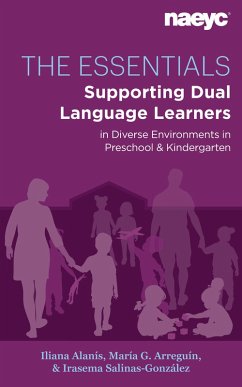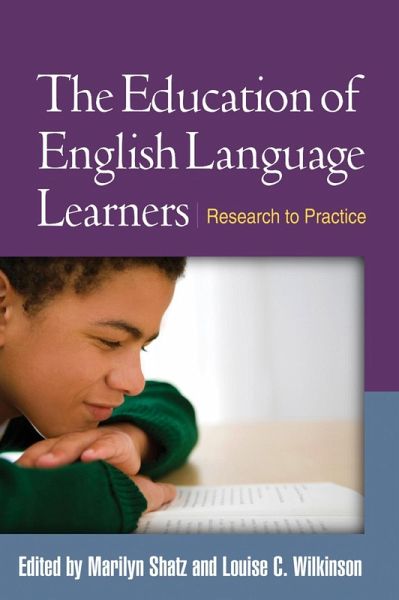
The Education of English Language Learners (eBook, ePUB)
Research to Practice
Redaktion: Shatz, Marilyn; Wilkinson, Louise C.
Versandkostenfrei!
Sofort per Download lieferbar
27,95 €
inkl. MwSt.
Weitere Ausgaben:

PAYBACK Punkte
14 °P sammeln!
This comprehensive volume describes evidence-based strategies for supporting English language learners (ELLs) by promoting meaningful communication and language use across the curriculum. Leading experts explain how and why learning is different for ELLs and pinpoint specific best practices for the classroom, illustrated with vivid examples. Particular attention is given to ways in which learning English is intertwined with learning the student's home language. The book addresses both assessment and instruction for typically developing ELLs and those with language disabilities and disorders. I...
This comprehensive volume describes evidence-based strategies for supporting English language learners (ELLs) by promoting meaningful communication and language use across the curriculum. Leading experts explain how and why learning is different for ELLs and pinpoint specific best practices for the classroom, illustrated with vivid examples. Particular attention is given to ways in which learning English is intertwined with learning the student's home language. The book addresses both assessment and instruction for typically developing ELLs and those with language disabilities and disorders. It demonstrates how educators and speech-language professionals can draw on students' linguistic, cognitive, sociocultural, and family resources to help close the achievement gap.
Dieser Download kann aus rechtlichen Gründen nur mit Rechnungsadresse in A, D ausgeliefert werden.
Alle Preise in Euro und inkl. der gesetzl. MwSt. | Innerhalb Deutschlands liefern wir preisgebundene Bücher versandkostenfrei. Weitere Informationen: bitte hier klicken
Support
Bitte wähle dein Anliegen aus:
Rechnungen
Bestellstatus
Retourenschein
Storno





